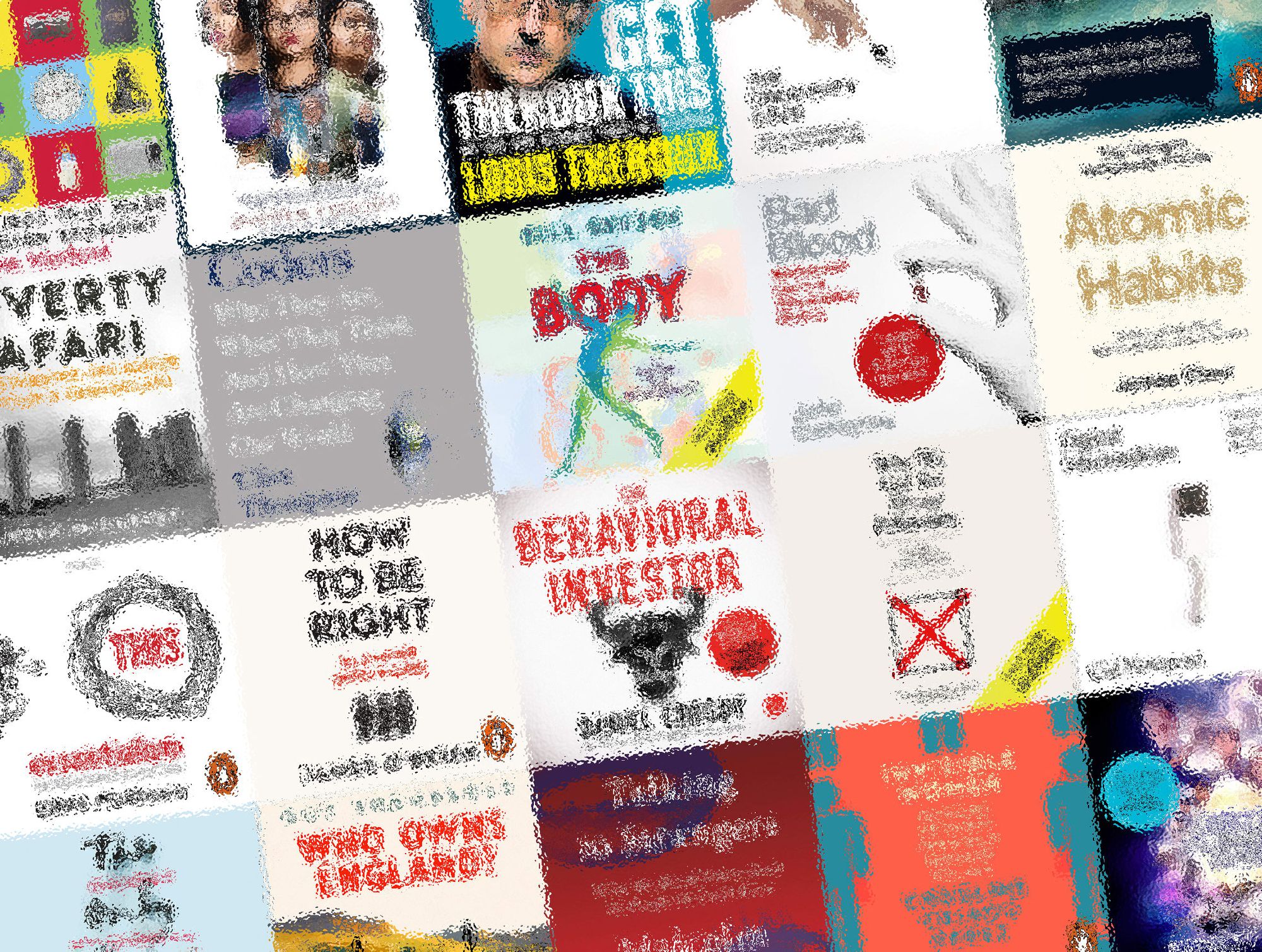Near the end of 2018, I stumbled upon a thread of tweets by First Minister of Scotland Nicola Sturgeon in which she shared some of the many books that she had enjoyed during that year. I was both amazed and ashamed that a leader of a nation could consume so much literature whilst I, a mere sellsword codemonkey, barely got through a book every month (or two).
It wasn’t that I didn’t enjoy reading – I have always loved reading (and buying) books – it was just that I had somehow convinced myself that I didn’t have the time to read. I realised that this simply wasn’t true, that I could easily make time to read if I so desired, and vowed to consume more books during 2019.
Pleasingly, I’ve been quite successful in my endeavours. Audible has helped greatly, turning otherwise dead time spent commuting, walking the dog, mowing the lawn, or working out at the gym into productive book consumption time.
Here are the twenty books that I’ve most enjoyed during the year:
The Top 5
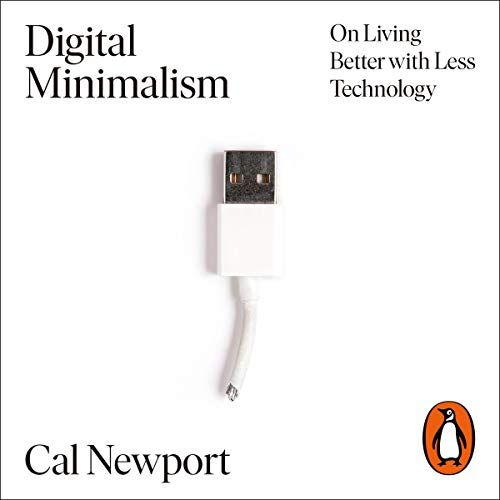
Digital Minimalism: Choosing a Focused Life in a Noisy World by Cal Newport
The only book that I read cover-to-cover on two separate occasions during 2019. Following on from So Good They Can’t Ignore You and Deep Work, two other favourites of mine, Cal’s latest book offers practical concrete advice on how to regain focus in these digitally-distracted times.
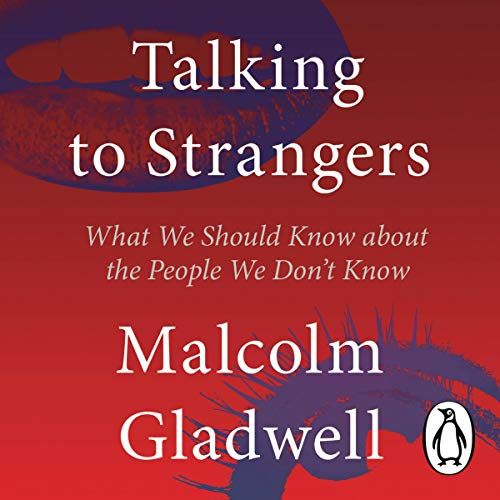
Talking to Strangers: What We Should Know about the People We Don’t Know by Malcolm Gladwell
A wonderful book that opened my eyes to how I engage and interact with other humans, and the many potential opportunities for devastating misunderstandings. I recommend the enhanced audiobook highly, as (where possible) it features original audio recordings and interviews with people involved in the case studies.
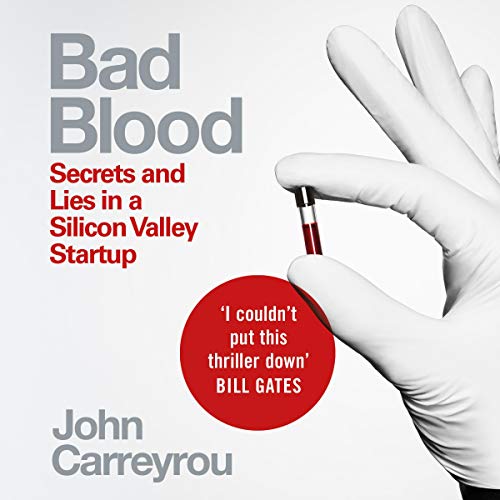
Bad Blood: Secrets and Lies in a Silicon Valley Startup by John Carreyrou
I had never heard of Theranos nor Elizabeth Holmes before reading this gripping true-life tale of organisational deception and misbehaviour, written by the WSJ investigative journalist who broke the story.
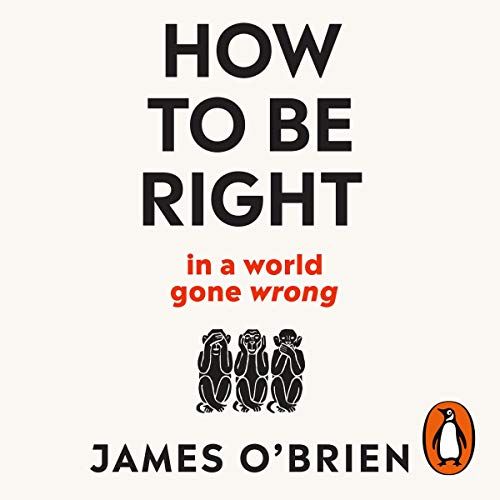
How to Be Right: … in a world gone wrong by James O’Brien
A great book written from the relatively unusual vantage point of talk radio host James O’Brien, who spends his days calmly and rationally explaining to callers the absurdity of their stated viewpoints (often, it seems, by simply giving them sufficient opportunity to explain themselves, or consider the meaning of the cliched words that they spout). Despite the title, O’Brien doesn’t claim to always be right, and in some chapters explains how the discourse on his show has led to the maturation of his own viewpoints.
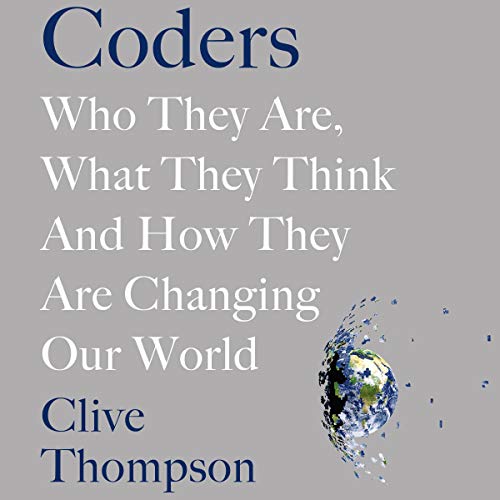
Coders: Who They Are, What They Think And How They Are Changing Our World by Clive Thompson
A bit of navel-gazing really, I enjoyed reading Wired Magazine’s Clive Thompson’s masterful description of what coders are like, and why. The audiobook is over 13 hours, but it flew by for me in little over a week’s listening. We coders are a funny (and disturbingly homogenous) breed, and this timely work explains us perfectly.
The Best of the Rest
Atomic Habits: An Easy and Proven Way to Build Good Habits and Break Bad Ones by James Clear
It’s the little things, you know? I read this book in the first half of the year, and its advice was instrumental in helping me (as the subtitle clearly says) to break some terrible habits and form some wonderful new ones (like reading more books!). I think it’s high time I flicked through this modern classic again, as I set new goals for 2020.
The Behavioral Investor by Daniel Crosby
I read a surprising number of books about investing, most of which are too humdrum to mention here. But The Behavioral Investor is a brilliant, comprehensive explication of the psychological and physiological impediments on successful investing, along with tactics and strategies to overcome these.
The Body by Bill Bryson
As someone who dislikes the thought of blood and dropped the study of Biology at the first opportunity aged 14, I’m amazed that I made it through this book. In the interests of road safety I did postpone listening to a couple of chapters whilst driving. As with most Bryson books, there is an engaging mix of science, history and human interest anecdotes to avoid the topics ever becoming too dry.
The Creativity Code by Marcus du Sautoy
I read a few different popular books on AI, Machine Learning and Algorithms in 2019. This was my favourite, as it delved down to (for me) the right levels of mathematical and computational detail without being either facile nor bewildering.
Essentialism: The Disciplined Pursuit of Less by Greg McKeown
A relatively short book that, in places, inevitably covers some of the same ground as Atomic Habits, Digital Minimalism and Ten Arguments for Deleting Your Social Media Accounts Right Now. But nonetheless, it’s a decent high-level overview of how to do less yet accomplish more (or rather, more of the right things). I’ll most likely reread this at some point in 2020.
Fifty Things That Made the Modern Economy by Tim Harford
A lovely easy book to dip into. Fifty bite-sized micro-documentaries explaining how the modern economy as we know it was formed. I listened to much of this while decorating my study and mowing the lawn. I fear it may have resulted in my becoming a tedious bore (“Did you know…?”) in conversations with Mrs Nelson for weeks afterwards.
Gotta Get Theroux This: My Life and Strange Times in Television by Louis Theroux
One of the few biographical books I read during the year, from national treasure and documentary maker Louis Theroux. I was in need of something lighter after wading through Yuval Noah Harari’s Sapiens: A Brief History of Humankind, and Jocelyn wisely suggested I read this. Entertaining, yet more than a little poignant in many places, most obviously in the chapters on Jimmy Savile.
Hidden Figures: The Untold Story of the African American Women Who Helped Win the Space Race by Margot Lee Shetterley
Not remotely techie or geeky, this is a fascinating social history of how a group of brilliant women helped the US Space Program to succeed, despite facing twin prejudices due to their gender and the colour of their skin. Some of these themes also crop up in Coders, one of my other favourites from 2019
.
Invisible Women: Exposing Data Bias in a World Designed for Men by Caroline Criado Perez
Guaranteed to make every feminist’s piss boil, and rightly so. Superbly researched book exposing shocking gaps in datasets as far as women’s requirements are concerned.
The Only Story by Julian Barnes
I don’t often read novels about love, but when I do they are usually written by Julian Barnes.
Poverty Safari: Understanding the Anger of Britain’s Underclass by Darren McGarvey
I chanced upon this book in Waterstones while on a weekend city break to Glasgow for August Bank Holiday. Unexpectedly hilarious, well-paced and thought-provoking. Quite insightful reading for middle-class pricks like me.
Ready Player One by Ernest Cline
Not the kind of thing I would usually buy, but the Wil Wheaton narrated audiobook was recommended to me by Nick McKenna, so I gave it a go and thoroughly enjoyed it. Filled with much 1980s nerdy nostalgia which warmed the cockles of my heart. Subsequently made into a moving picture directed by one Steven Spielberg, apparently.
Ten Arguments For Deleting Your Social Media Accounts Right Now by Jaron Lanier
Eloquent, well-argued, and coming from a very smart Silicon Valley pioneer like Lanier, these ten arguments are difficult to ignore. Combined with Essentialism and Digital Minimalism, this helped to persuade me to spend more time engaging in meaningful activities and less time frittering my life away on social media in 2019.
Who Owns England?: How We Lost Our Green and Pleasant Land, and How to Take it Back by Guy Shrubsole
A bit of a wildcard, but this book featured a combination of statistics, history, cartography and lefty politics that I couldn’t resist.
Why We Get The Wrong Politicians by Isabel Hardman
The system’s fucked. But then, you probably guessed that. Hardman goes into much more detail, which you will either appreciate (like me) or find tedious (like Mrs Nelson, who heard several chapters of this book by proxy when we were decorating the living room).
What’s Next?
You’ve seen the kind of things I enjoyed reading in 2019; what should I read in 2020? Let me know in the comments below.
